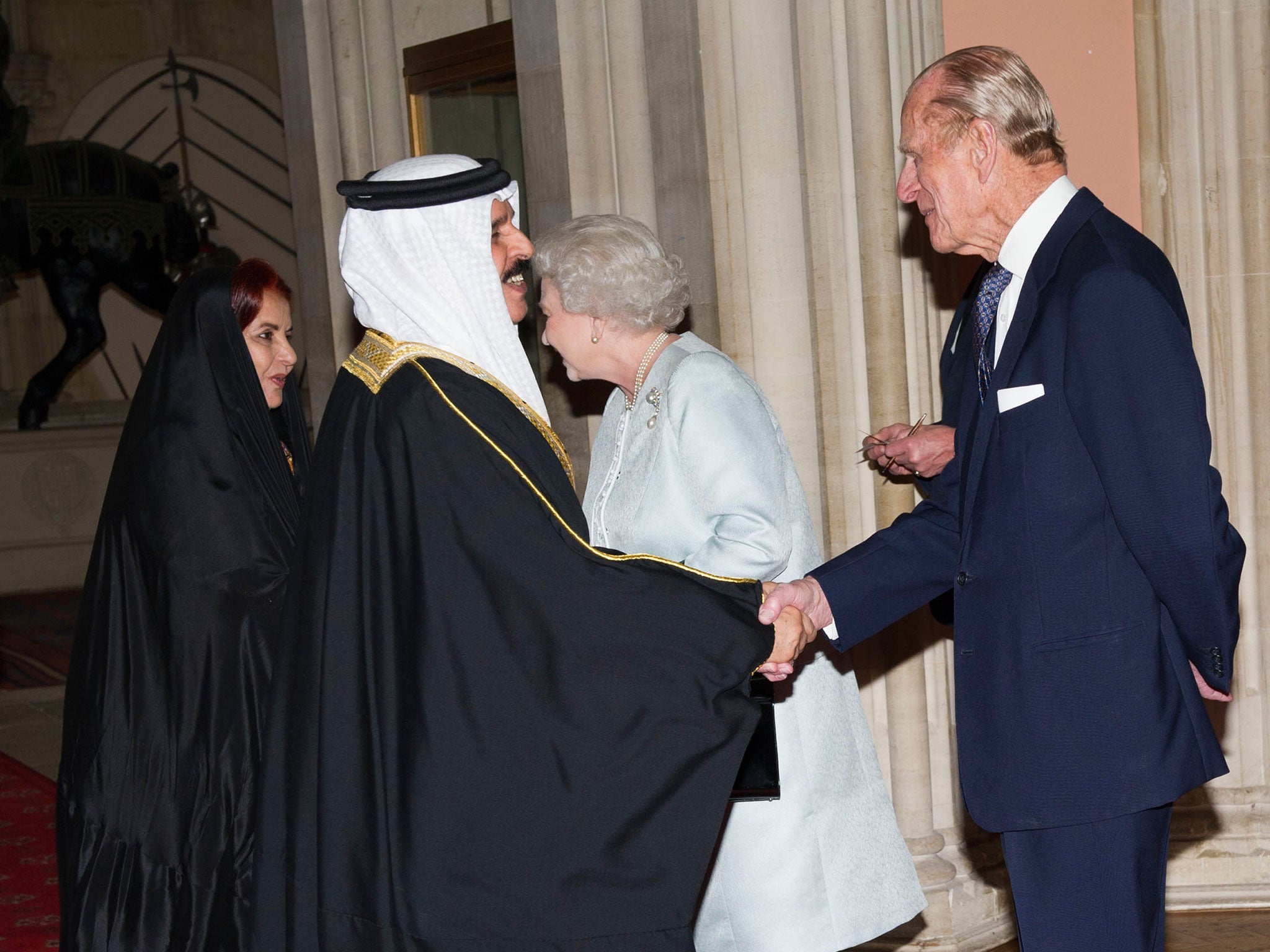Exiled Bahrain activist who protested at Windsor Horse Show among 72 to have citizenship revoked
'This wasn’t a decision made in the courts in Bahrain, this was a decision made by a dictator to make me stateless', says activist

Your support helps us to tell the story
From reproductive rights to climate change to Big Tech, The Independent is on the ground when the story is developing. Whether it's investigating the financials of Elon Musk's pro-Trump PAC or producing our latest documentary, 'The A Word', which shines a light on the American women fighting for reproductive rights, we know how important it is to parse out the facts from the messaging.
At such a critical moment in US history, we need reporters on the ground. Your donation allows us to keep sending journalists to speak to both sides of the story.
The Independent is trusted by Americans across the entire political spectrum. And unlike many other quality news outlets, we choose not to lock Americans out of our reporting and analysis with paywalls. We believe quality journalism should be available to everyone, paid for by those who can afford it.
Your support makes all the difference.An exiled Bahraini activist has had his citizenship revoked after protesting against the King of Bahrain at the Royal Windsor Horse Show.
The Bahraini government was condemned by human rights campaigners today after it revoked the nationality of 72 citizens for "damaging national security".
Campaigners said the list was mostly made up of peaceful critics of the regime, including exiled activist Sayed Ahmed Alwadaei who protested in Windsor on May, and is "nothing more than a cover" for a clampdown on freedom of speech.
Mr Alwadaei, who is now living as a refugee in London, protested at the Royal Windsor Horse Show where the Queen was hosting Bahrain's King Hamad bin Issa al-Khalifa as part of major trade mission to the UK.
Mr Alwadaei, who was previously detained by the regime for six months, said: "There is no other way to explain the removal of my citizenship; I am a peaceful activist and campaigner and I embarrassed the King of Bahrain over his human rights abuses when he was visiting Britain and playing court with the Queen."
He added: "This wasn’t a decision made in the courts in Bahrain, this was a decision made by a dictator to make me stateless."
His protest at Windsor, where he crossed the parade ground waving the Bahraini flag and calling for the Queen to distance herself from the regime (see video below), was doubly embarrassing for Bahrain’s government because also present at the event was Prince Nasser bin Hamed Al Khalifa, the Sandhurst-educated son of the king, who has since been stripped of his diplomatic immunity by the High Court and could face investigation by Scotland Yard over allegations of torture during the Sunni regime's crackdown on Shia protestors in 2011. He denies the allegations.
In the past Bahrain has revoked the nationality of citizens it deems a security threat, but this is the largest crackdown of its kind and includes many democracy campaigners and activists, as well as Bahrainis who have travelled to Syria to fight with Isis.
Ali Abduleman, a Bahraini blogger who fled the country in a shipping container in 2013 and now lives in London is also on the list. He said: "The regime has mixed in members of Isis to cover the fact that this is nothing more than a crackdown on freedom of speech".
The Sunni-dominated regime in Bahrain is seen as a bulwark against the Iran and in 2011 the British government gave strong backing to the regime when it brutally suppressed protestors during its version of the Arab Spring amid widespread reports of protestors being jailed and tortured for demanding rights for the Shia majority, an estimated 60 per cent of the country, from the Sunni al-Khalifa monarchy.
The following year King Hamad pledged himself to reconciliation and political talks after an independent commission examined the crisis. However, reform has been slow as protests and attacks on the government have become more common in the country.
In an embarrassment to the British government the list was published by the Bahraini Interior Ministry just over a week after Foreign Secretary Philip Hammond praised improvements in the country’s human rights record, which has repeatedly been criticised by Human Rights Watch and Amnesty International.
Mr Hammond told Parliament that the country was "travelling in the right direction" as he defended a controversial decision to open a Royal Navy base in the kingdom.
However Mr Alwadaei, who is the advocacy director of the Bahrain Institute for Rights and Democracy (BIRD), said Mr Hammond’s words were an "insult" and showed that "when it comes to Bahrain Britain’s is failing to champion human rights and is instead siding with a dictatorship."
He said: "Bahrain has bought Britain’s silence with a military base and that is why we see such ridiculous statements coming from the Foreign Secretary."
Join our commenting forum
Join thought-provoking conversations, follow other Independent readers and see their replies
Comments